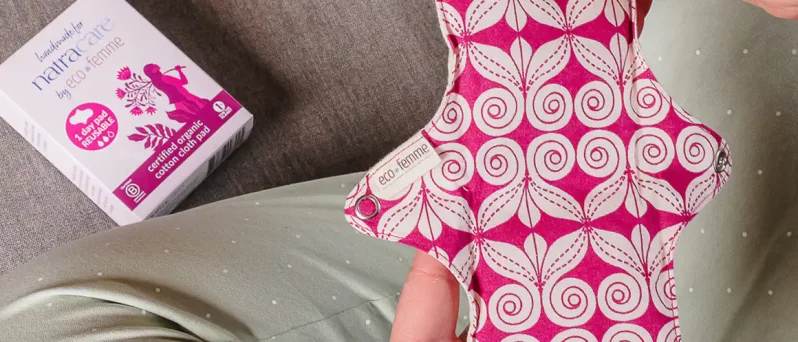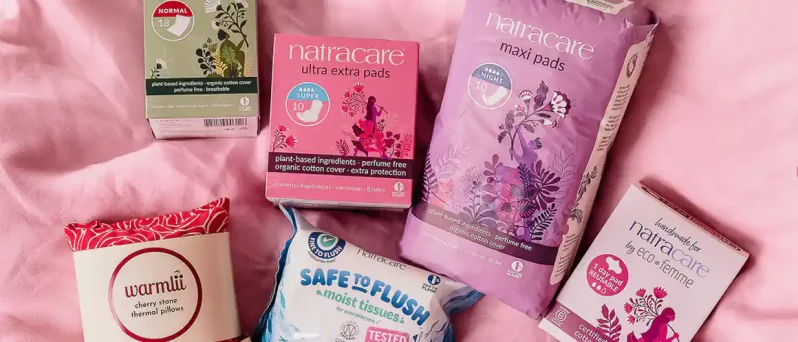As headlines swirl around baby wipes and toxic “forever chemicals” known as PFAS, Natracare proudly announces its lab results: Zero trace.
Press Releases
Tampon Study Shows High Levels Of Toxic Pesticides
A report published May 2025 by PAN UK and Wen expose monthly exposure to unwanted pesticides and chemical of concern from mainstream periods products including tampons.
Natracare Launches First Period Starter Kit to Provide Eco-Conscious Options
Available exclusively online, the new kits encourage healthier, eco-conscious choices for teens and pre-teens getting their first period.
Natracare commits to becoming Endometriosis Friendly Employer
The Endometriosis Friendly Employer scheme, run by charity Endometriosis UK, Natracare, will improve support, break down taboos and stigma around menstrual health.
Bodywise (UK) Ltd, Natracare’s Founding Company Is Officially B Corp Certified
Natracare, the first natural brand of period products, is proud to announce the certification of its parent company, Bodywise (UK) Ltd, as a B Corp.
Susie Hewson Wins Gold Lifetime Achievement Award at Stevie Awards for Women in Business
Natracare founder named winner of a Gold Award in the Lifetime Achievement and a Silver Award in the Social Change Maker of the Year categories in the 21st annual Stevie Awards for Women in Business.
Natracare Launches E-Commerce Site
Natracare, the leading brand of more sustainable period products is now just a click away for US and UK consumers. A perfect opportunity to try out Natracare’s high-quality period products.
GOTS Certified Natracare: “Study of Metals in Tampons is a Catalyst for Industry Change”
New research reveals detectable levels of metals in some brands of tampons sold in the US, UK and EU, including toxic metals such as lead, arsenic and cadmium. In response, Natracare demands better regulatory control for menstrual products and, reaffirms its’ commitment to GOTS certified organic as the gold standard.
Natracare Pads And Panty Liners Are First To Become Seedling Certified Compostable
Natracare’s pads and liners now Seedling Mark Compostable in world first for period care contributing to a circular economy with natural materials.
Natracare’s Organic Makeup Remover Wipes Achieve EWG Certification
Environmental Working Group certification is the most recent award touting Natracare’s dedication to products that meet the highest standards for health and environmental impact.








